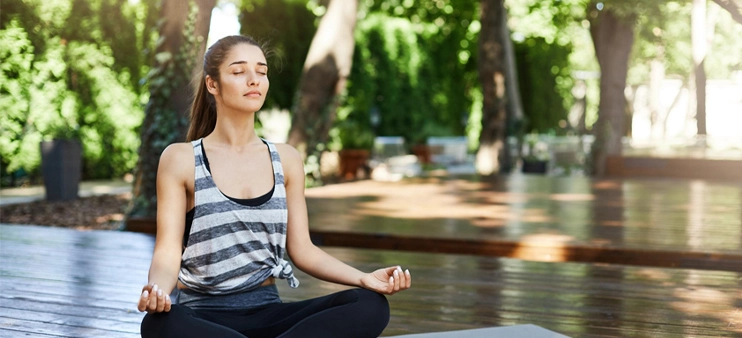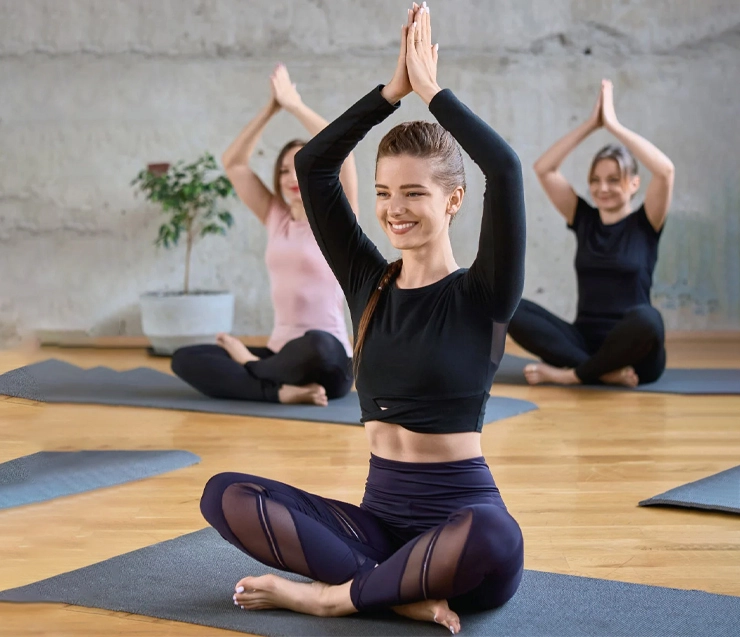PVA School of Yoga: Nurturing Well-being and Wisdom
PVA School of Yoga, an initiative of PVA Multi-specialty Hospital, commenced its yoga journey in 2003. Initially offering morning yoga sessions to patients and Ayurveda students, we expanded our horizons in 2005 with the inception of PVA School of Yoga. Affiliated with the District Yoga Association, Kannur, a district-level authority of the National Yoga Federation, we proudly offer diverse yoga courses and yoga instructor classes for both international and national students.
Courses Offered:
Yoga: The Path to Union and Bliss
Yoga, defined as union—connecting the self to cosmic consciousness—transcends the material world and the confines of the mind. In the material realm, an ordinary person seeks pleasure, but the cosmic consciousness represents a state of profound bliss. Achieving this elevated state requires overcoming the material mind, a formidable task for the average person. Vedic and Indian traditions prescribe various paths to transform an individual from the ordinary to the divine, leading to the ultimate state of bliss. These diverse paths collectively fall under four main categories:

Ancient Vedic Scriptures, particularly the Bhagavad Gita, elaborate on these paths, emphasizing their interconnectedness on multiple layers of the human body, encompassing the mental, emotional, and intellectual realms.
According to Swami Vivekananda, a renowned Indian monk, “Every soul is potentially divine; the goal is to manifest this divinity within by controlling internal and external nature—through work, worship, psychic control, or philosophy—either individually or collectively.”
Hatha Yoga: The Fulfilling Path
Among the myriad paths, Hatha Yoga stands out as the most comprehensive, offering tools that facilitate union across all layers of existence—from the physical to the supreme self.
The term “Hatha” combines two root words, Ha and Tha, representing opposing energies foundational to every creation. In the human body, Ha and Tha signify physical and mental energy.
Hatha Yoga employs tools such as Asana (physical postures), Pranayama (breath control), Mudra (physical attitudes), Kriya (purification), and Nadanusandana (sound practices) to guide individuals towards perfection.
Regular Hatha Yoga practice brings myriad benefits, enhancing physical health, improving the functioning of vital systems, and balancing energy flow through Pranayama and Mudra practices. The practice fosters emotional balance, alleviating stress and depression, while cultivating mental and physical awareness beyond the mind—leading to the realization of the soul. This profound awareness paves the way to a state of supreme bliss, transcending all material pleasures.

Meet Yogacharya Sudheep Thunoli: Leading the Path to Wellness
Yogacharya Sudheep Thunoli, M Sc. Yoga, is the esteemed Chief Instructor and Head of the Department at our renowned institution.

Achievements:
As a distinguished yoga practitioner and instructor, Yogacharya Sudheep Thunoli brings a wealth of knowledge and experience to our institution, contributing to our mission of promoting holistic well-being and fostering a deeper understanding of the transformative power of yoga.

